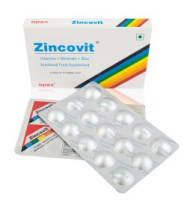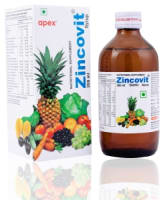USED FOR:
Bradycardia
Infections
Severe allergic reaction
COMPOSITION:
Atropine (1% w/v)
Chlorbutol (0.35% w/v)
Prednisolone (0.25% w/v)
Therapeutic Uses:
ophthal
ophthal otologicals

No interaction found

WEIGH RISKS VS BENEFITS
Atrisol Eye Drop may be unsafe to use during pregnancy.Animal studies have shown adverse effects on the foetus, however, there are limited human studies. The benefits from use in pregnant women may be acceptable despite the risk. Please consult your doctor.

No information is available on the use of Atrisol Eye Drop during lactation. Please consult your doctor.

Atrisol Eye Drop may make you feel dizzy, drowsy or affect your vision. Do not drive until your vision is clear.

CAUTION
Atrisol Eye Drop should be used with caution in patients with kidney disease. Dose adjustment of Atrisol Eye Drop may be needed. Please consult your doctor.

CAUTION
Atrisol Eye Drop should be used with caution in patients with liver disease. Dose adjustment of Atrisol Eye Drop may be needed. Please consult your doctor.
Uses of Atropine
Atropine is used in the treatment of bradycardia.
How to use Atropine
This medicine is for external use only.Take it in the dose and duration as advised by your doctor. Check the label for directions before use. Hold the dropper close to the eye/ear without touching it. Gently squeeze the dropper and place the medicine inside the lower eyelid or ear. Wipe off extra liquid.
How Atrisol Eye Drop works
Atropine belongs to class of medication called as anticholinergic drugs. It acts by blocking the activity chemicals (acetylcholine) in the body, thereby producing effects such as reduction of salivary and other body secretions, relief of abdominal pain due to cramps, increase in the heart rate, and widening of the pupil..
Common Dryness in mouth, Excessive thirst, Palpitations, Increased heart rate, Arrhythmia, Reduced bronchial secretions, Dry skin, Slow heart rate, Photophobia, Dilatation of pupil, Flushing (sense of warmth in the face, ears, neck and trunk), Difficulty in urination, Constipation, Loss of accommodation.
Expert advice for Atropine
Do not start or continue atropine, in any form if you are allergic to atropine or any other ingredients of the medicine.
Do not start or continue atropine eye drops if you wear soft contact lenses; if you have increased pressure in the eyes (glaucoma); fever or increased heart rate.
Do not start or continue atropine tablets if you have a condition called pyloric stenosis characterize with difficulty for food to move from stomach into the small intestine causing pain or vomiting; or acid reflux with heartburn (gastro-oesophageal reflux) and diarrhea.
Avoid taking atropine if you have urinary retention, high blood pressure, any heart problem including weak heart, or high thyroid hormone level.
Do not take this drug if you have rare hereditary problems of intolerance to done or more types of sugar (including galactose intolerance, the Lapp lactase deficiency or glucose-galactose malabsorption.)
Do not drink alcohol while taking atropine in any form.
Atropine can cause visual disturbances, giddiness and staggering and, therefore, caution has to be taken before operating an automobile or machinery or engaging in activities requiring mental alertness and coordination.
Q. Is atropine a controlled substance?
No, it is available as prescription drug
Q. Is atropine a beta blocker /calcium channelblocker/adrenaline/ parasympathomimetic/vasopressor?
No, atropine belongs to class of medication called as anticholinergics or cholinergic antagonist
Q. Is atropine an agonist or antagonist?
Atropine is an antagonist of cholinergic receptors
Q. Is atropine a narcotic drug?
No, it is not a narcotic. However, it is often available in combination with drugs that have abuse potential
Q. Does atropine increase blood pressure/decrease heart rate/sedation/urinary retention/increase contractility?
Atropine decreases heart rate and increases blood pressure; It causes urinary retention as well as decreased contractility of gut and urinary bladder muscles. It does not cause sedation, on the contrary, it causes excitation, sleeplessness and agitation
Q. Does atropine cross placenta?
Yes, small amount of atropine can cause placenta. Always follow your doctor’s advice regarding its use
Q. Does atropine block activity of acetylcholine /nicotinic receptor?
Yes, atropine acts by inhibiting the activity of acetylcholine on muscarinic and nicotinic receptors.
Uses of Chlorbutol
Chlorbutol is used to prevent infections.
How to use Chlorbutol
This medicine is for external use only.Take it in the dose and duration as advised by your doctor. Check the label for directions before use. Hold the dropper close to the eye/ear without touching it. Gently squeeze the dropper and place the medicine inside the lower eyelid or ear. Wipe off extra liquid.
How Atrisol Eye Drop works
Chlorbutol is an antiseptic, anesthetic, anti-irritant, and emollient agent. It works as local anesthetic by providing a quick relief from pain; bacteriostatic reinforcing the activity of chlorhexidine. It also produces a mild irritant effect on the respiratory tract, possibly via a nasal/pulmonary arc..
Common Nausea, Noisy breathing, Oral peeling, Parotid gland swelling, Abdominal cramp, Allergic reaction, Anaphylactic reaction, Burning sensation of tongue, Cough, Diarrhoea, Discoloration of teeth, Altered taste, Shortness of breath, Itching, Flushing (sense of warmth in the face, ears, neck and trunk), Skin reaction, Erythema, Sneezing, Subcutaneous swelling, Tongue discolouration, Vomiting, Burning sensation.
Expert advice for Chlorbutol
Cream:Avoid contact with eyes.Avoid prolonged use for more than 7 days.Wash hands well after use.Use it for external application only.Mouthwash:Do not use at the same time as toothpastes.Do not swallow the solution.Avoid contact with ears and eyes.Nasal decongestant capsule:Only inhale the vapor.Do not take capsule or drops internally.Avoid direct contact with skin or eyes.
Q. What is chlorobutanol used for?
Chlorbutol is used in different formulations such as cream, mouthwash and decongestant capsules.Cream: to treat mild pain caused by minor skin cuts, scratches and grazes (chapping) and soreness caused by detergents, soaps, deodorants and jewellery and bites and stings.Mouthwash solution: to inhibit dental plaque formation, as an aid in the treatment and prevention of irritation, redness, and swelling of gums (gingivitis), and in maintaining oral hygiene. It is important in the management of mouth ulceration and oral infections due to fungus candida and can be used as an adjuvant treatment for minor infections of the throat. It is also used as a disinfectant solution for cleansing of removable dentures.Capsule: for the symptomatic relief of colds and the symptomatic rapid relief of nasal congestion.
Uses of Prednisolone
Prednisolone is used in the treatment of severe allergic reaction, allergic disorders, asthma, rheumatic disorder, skin disorders, eye disorders and nephrotic syndrome.
How to use Prednisolone
This medicine is for external use only.Take it in the dose and duration as advised by your doctor. Check the label for directions before use. Hold the dropper close to the eye/ear without touching it. Gently squeeze the dropper and place the medicine inside the lower eyelid or ear. Wipe off extra liquid.
How Atrisol Eye Drop works
Prednisolone belongs to a group of medicines called as glucocorticosteroids. Prednisolone increases the level of corticosteroids which are already present in the body and helps to treat various inflammatory conditions. It has anti-inflammatory, metabolic, immune, and hormonal effects on the body..
Common Electrolyte imbalance, Redistribution/accumulation of body fat, Bone degradation, Increased risk of infection, Muscle disorders, Increased blood pressure, Altered bone growth, Skin scar, Behavioural changes, Increased glucose level in blood, Cataract.
Expert advice for Prednisolone
It is a steroid medicine which works well for many different conditions, including serious illnesses. Take regularly to gain maximum benefit. Do not discontinue unless advised by your doctor. You may need to decrease the dose gradually. You may get side effects such as mood changes or stomach problems. Notify your doctor if you get them. Some side effects may occur after weeks or months. These include weakness of arms and legs, or developing a rounder face. Your risk of getting an infection may become higher. Tell your doctor immediately if you have a fever, flu-like symptoms, cough, painful urination, or a wound that does not heal.
Q. Is Prednisolone an anti-inflammatory drug?
Prednisolone belongs to the class of corticosteroids which has anti-inflammatory properties (suppresses the inflammation associated with many diseases, for example, arthritis). Hence, Prednisolone is used for the treatment of a number of inflammatory and auto-immune conditions.
Q. How long can I take Prednisolone for?
It is advisable to take Prednisolone for the duration prescribed by your doctor. Do not stop the treatment suddenly or take for a longer period than recommended by your doctor.
Q. Does Prednisolone contain penicillin?
Prednisolone does not contain penicillin. Prednisolone belongs to a group of medicines called steroids.
Q. Does Prednisolone expire?
Yes, Prednisolone does expire. All the medicines come with an expiry date mentioned on the pack. You must check the expiry date before using any medicine.
Q. Is Prednisolone a pain-killer?
Prednisolone is not a pain-killer. Prednisolone belongs to a group of medicines called steroids which are anti-inflammatory in nature and can help in the relief of pain associated with inflammation.
Q. Is Prednisolone safe?
Yes. Prednisolone is safe if used at prescribed doses for the prescribed duration as advised by the doctor.
Q. Is Prednisolone an immunosuppressant?
Prednisolone belongs to the class of corticosteroids and has immunosuppressant properties (suppresses the body’s immune system). Hence, Prednisolone is used for the treatment of a number of inflammatory and auto-immune conditions.
Q. Is Prednisolone a glucocorticoid?
Prednisolone is a glucocorticoid and belongs to a group of medicines called steroids (corticosteroids).
Q. Can I take Prednisolone with antibiotics?
Certain antibiotics may increase the metabolism of Prednisolone and hence decrease its effects. So, it may be necessary to adjust the dose of Prednisolone accordingly. Please consult your doctor before taking Prednisolone with antibiotics.
Q. Can I take Prednisolone with paracetamol?
Prednisolone can be taken with paracetamol. No drug-drug interactions have been clinically seen between the two. However, interactions may occur. Please consult your doctor before taking the two medicines together.


 Atrisol Eye Drop
Atrisol Eye Drop  Bookmark
Bookmark





















